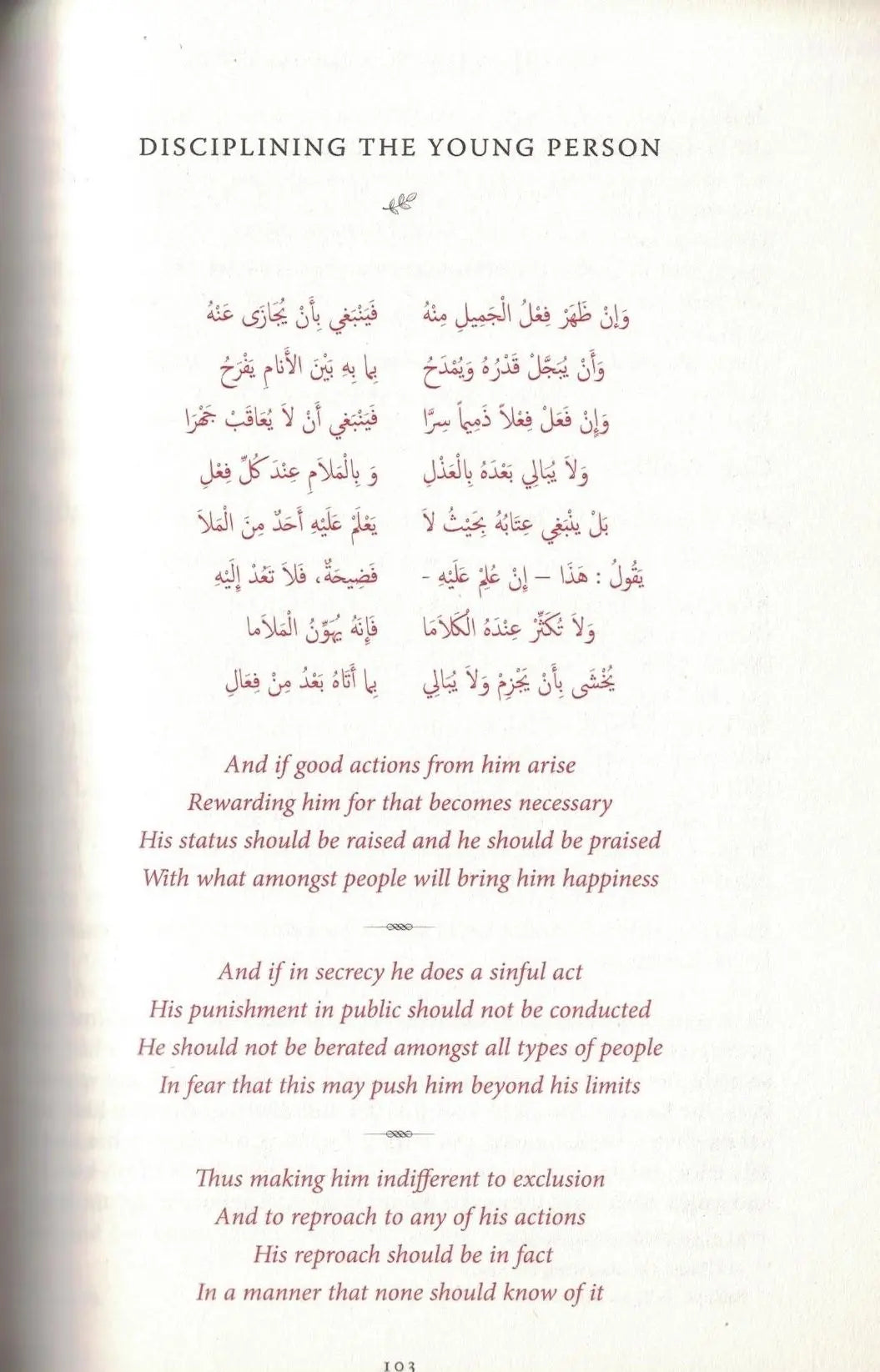About The Book
A translation and commentary on a classical Arabic poem about raising children. The advice it contains draws on traditional sources, the experience of the translator, and the reflections of people from various walks of life.
The author of the poem Riyadatul Sibyan, is the famed 16th Century jurist, Imam al-Ramli. Its translator, Abdul Aziz Ahmed, is an experienced teacher who studied both classical Islamic texts with renowned scholars, and modern psychology and pedagogy. The book discusses child development from the point of choosing a spouse to the child’s attaining maturity.
It contains explanations of key concepts such as adab, etiquette, aql, intellect and role models. There are practical examples and reflections on real situations, as well as explanations of prophetic traditions.
Each chapter contains discussion points and quotes from various contributors.
The topics include:
- Discipline
- Gender roles
- The influence of television and mass advertising
- The importance of finding time to play and relax and
- Ways of developing the intellect.
About The Author
Imam Shams al-Din Muhammad ibn Ahmad al Ramli was born in Ramlah, a village near Manufiyyah in Egypt, in 919 AH. He was the son of a famous Shafi'i faqih and mufti, Shihab al-Din Ahmad al-Ramli. His teachers include his father, Shaykh al-Islam Zakariyya al-Ansari and al-Khatib al-Shirbini. After his father’s death he became the chief Shafi’i mufti in Egypt. Such was his eminence that many came to identify him as the Mujaddid of his century. He died at Cairo in 1004 AH.
Riyadat al-Sibyan, a classical poem on parenting written 500 years ago by one of the leading authorities of the Shaf'ī School, Imam Muhammad ibn Ahmad al-Ramli who was in the tenth century after Hijra.
- Inculcate Islamic manners and the Prophetic character in their children
- Provide children with sound Islamic education
- Raise a spiritual child who loves Allah and His Messenger (peace be upon him)
- Protect one's children from negative influences, and
- Discipline children when necessary






